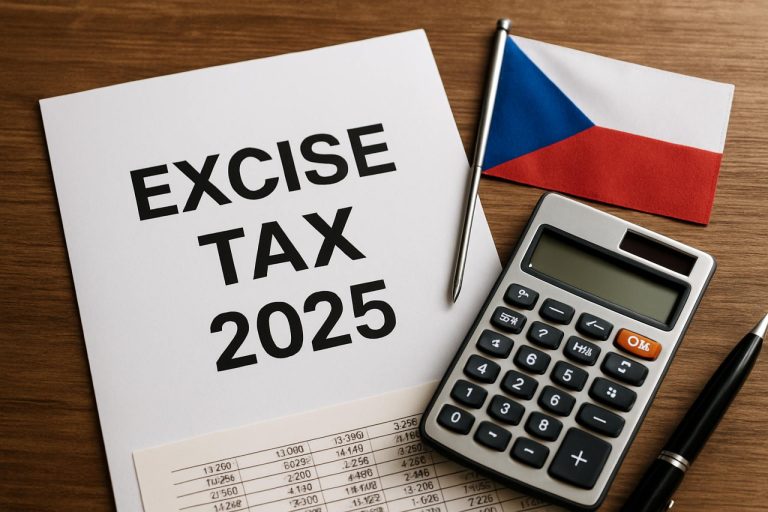
- The Labor Code is the cornerstone of Czech employment law, enacted in 2006 to balance worker protections with employer needs.
- Employment contracts are crucial, outlining key terms like job description and pay to legally protect employees from arbitrary changes.
- Employee rights include protection from unfair dismissal, a maximum 40-hour workweek, and at least four weeks of paid vacation annually.
- The Czech legal system offers mediation and labor courts to resolve employment disputes effectively.
- Understanding Czech employment law is essential for both workers and businesses to thrive in this balanced legal framework.
Imagine stepping into a vibrant Czech town square, bustling with life, the scent of freshly baked pastries wafting through the air. In this dynamic and historic setting, thousands of employees navigate their careers daily under the framework of Czech employment law—a system as intricate and finely-tuned as an old Czech watch.
Understanding the Foundation
At the heart of Czech employment law lies the Labour Code, a sturdy cornerstone designed to protect workers while balancing employers’ needs. Enacted in 2006, this legislation provides a robust scaffold of rights and responsibilities, ensuring fair treatment across the board. From minimum wage regulations to working hours, it governs the rhythm of the Czech workday.
A Closer Look at Contracts
Perhaps the most critical aspect of employment under Czech law is the employment contract. This essential document, akin to a map guiding the employment journey, must be crafted with precision and clarity. Employers are required by law to stipulate key terms, including job description, remuneration, and working hours. Engaged employees often find solace in knowing that their contract serves as a legal shield—protecting them from arbitrary changes.
The Rights That Matter
One of the most striking features of Czech employment law is its emphasis on employee rights. Picture Czech employees walking confidently into their workplaces, empowered by the knowledge that their rights are safeguarded. They cherish the security of not being exposed to unfair dismissal, as the law demands justifications for any termination, coupled with adequate notice.
Additionally, the law mandates regular working hours, typically capping the workweek at 40 hours. Employees can rest easy, knowing overtime is a choice, not an imposition. Paid vacation time, a significant feature, is robust, with workers entitled to at least four weeks of annual leave. This provision allows them a well-deserved respite to explore the picturesque Czech countryside or savor the cultural richness of Prague.
Navigating Challenges with Expert Guidance
Despite these protections, navigating the labyrinth of employment law can still be daunting. Disputes may arise, and when they do, the Czech legal system provides avenues for resolution. Employees and employers can turn to mediation or seek redress in specialized labor courts. These courts, with proceedings often as intricate as a marionette play, ensure justice is served, providing a stage for fair outcomes.
The Takeaway
In a land rich in tradition yet pulsating with modernity, Czech employment law serves as a guardian of balance between the freedoms of the worker and the prerogatives of the employer. It’s a landscape where everyone—from a barista in a cozy Brno café to an engineer in an Ostrava tech firm—can thrive, assured their rights are upheld.
For anyone embracing the vibrant Czech lifestyle or businesses operating within its borders, understanding the rhythm of Czech employment law is paramount. It is the key to unlocking a harmonious work environment and a prosperous career path.
Embrace the knowledge, respect the framework, and step confidently into the Czech workforce. The clockwork of Czech employment law is meticulously designed to ensure fairness, protect rights, and foster an environment where both employees and employers can flourish.
Diving into Czech Employment Law: A Guide for Modern Workers and Employers
Expanding on Czech Employment Law: Beyond the Basics
The original piece provided a foundational overview of Czech employment law, highlighting key components like contracts and employee rights. However, there are additional layers worth exploring that can help both employees and employers better navigate this legal landscape.
How to Navigate Czech Employment Contracts
Steps for Employees:
1. Understand Contract Types: Familiarize yourself with different types of employment contracts, such as fixed-term and indefinite contracts, to ensure you are signing an agreement that meets your needs.
2. Verify Key Terms: Always check that essential elements like salary, job description, and working hours are clearly articulated before signing.
Steps for Employers:
1. Craft Clear Terms: Ensure all employment contracts are detailed and in accordance with the Labour Code. Ambiguity can result in disputes later on.
2. Regular Review: Periodically review contracts to reflect any changes in employment conditions or law.
Real-World Use Cases
– Tech Startups: In Prague’s bustling tech scene, understanding employment law is critical for startups to maintain compliance when hiring international talent. This includes knowing the visa processes and employment permits for non-EU workers.
– Hospitality Sector: Given the dynamic nature of the hospitality industry, knowing the ins and outs of flexibility in employee scheduling can help in managing workloads effectively within legal limits.
Emerging Industry Trends
The Czech Republic is increasingly becoming an epicenter for advanced manufacturing and technology development. This trend necessitates a clear understanding of labor regulations to effectively manage high-skill employees and their expectations about work flexibility and benefits.
Reviews & Comparisons
Comparatively, Czech employment law is more stringent in its employee protections than some other European countries. For instance, the emphasis on justifiable dismissals and strong employee rights parallels German labor laws, which are known for their robustness.
Controversies & Limitations
While the Labour Code offers extensive protection, it also leads to bureaucratic hurdles. Employers often face challenges with the rigidity of employment contracts and termination processes, sometimes leading to stagnant labor markets during economic downturns.
Security & Sustainability in Employment
The Czech Labour Code mandates a formal notice period and severance pay, providing employees with financial security during job transitions. There are also sustainability initiatives, such as mandated health and safety regulations that employers must follow, contributing to the well-being of the workforce.
Insights & Predictions
Experts predict a gradual shift towards more flexible working conditions in the Czech Republic, echoing global trends. As a result, future legal amendments may focus on remote work regulation and digital nomadism, adapting to the post-pandemic work environment.
Actionable Recommendations
– For Employees: Always request a written explanation of any job-related changes and keep copies of all employment-related documents.
– For Employers: Invest in legal consultations to ensure compliance with the Labour Code, especially amidst evolving EU regulations.
For more details on navigating employment law in the Czech Republic, visit the official CzechInvest site for business insights.
By understanding these facets of Czech employment law, both employees and employers can not only protect their rights but also responsibly manage obligations, ensuring a sustainable and thriving workplace environment.



